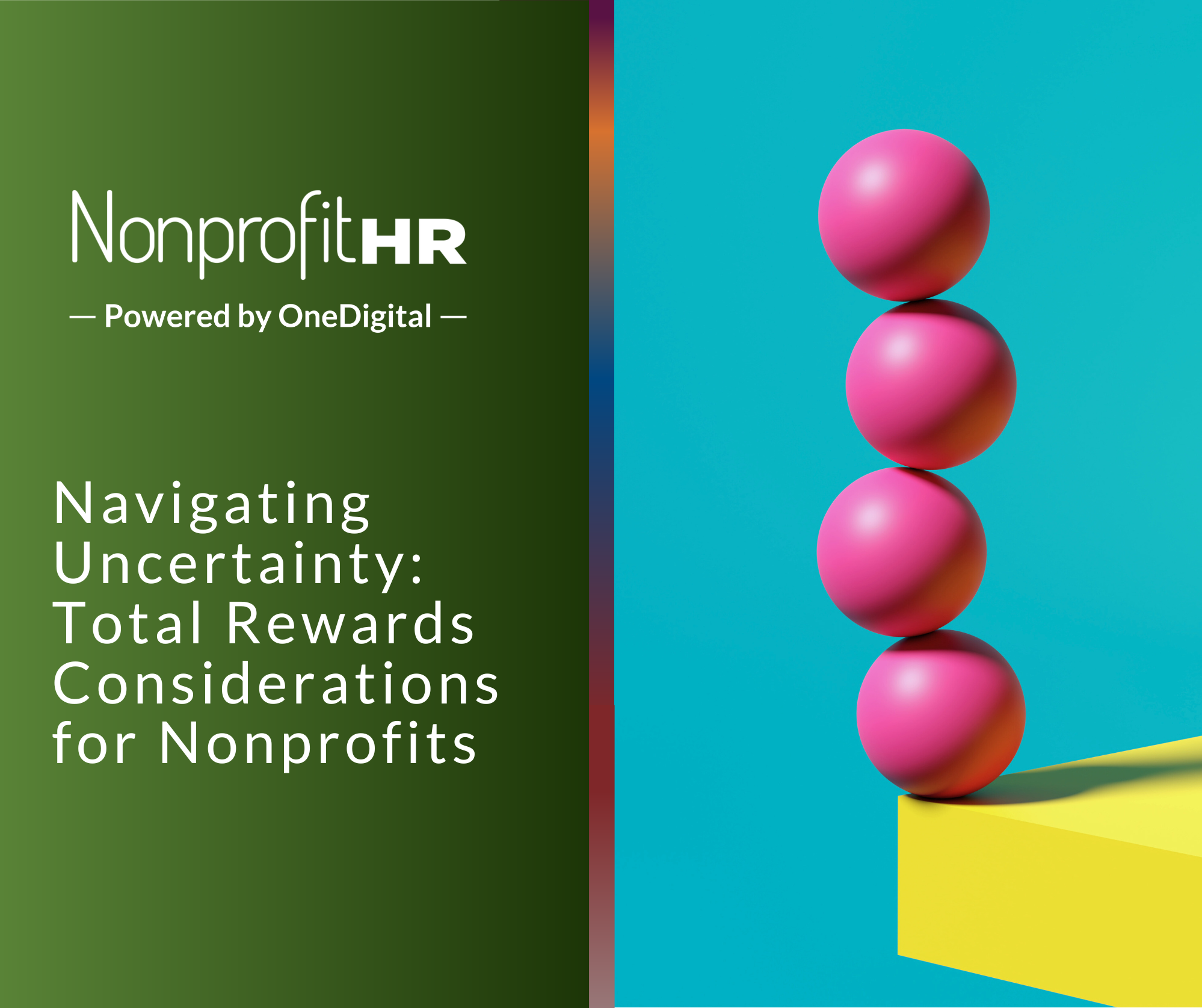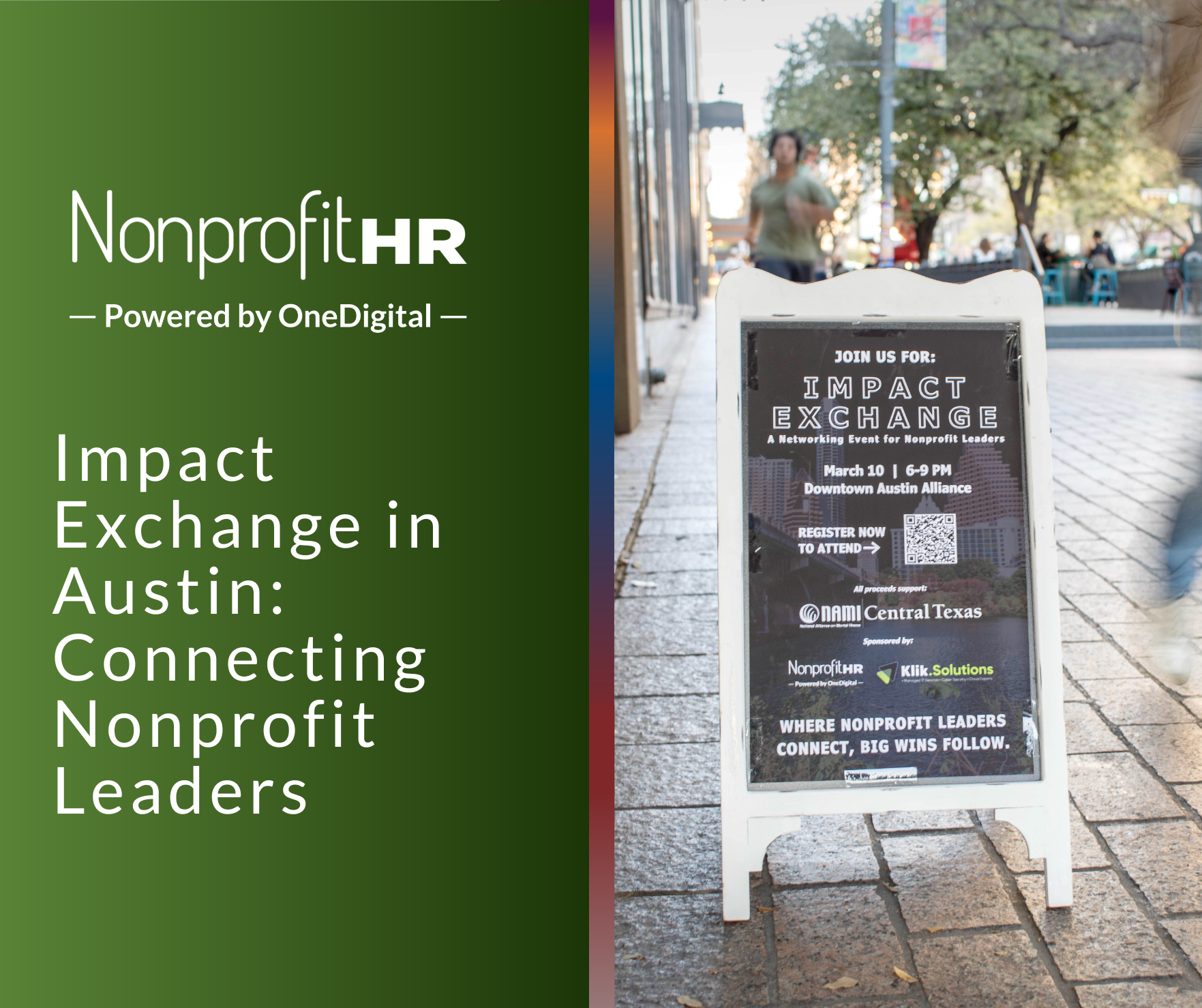WTOP: 5 ways nonprofits can…
In the age of the Great Resignation, turnover has grown at an alarming rate and is at risk to continue growing if employees don’t feel engagement is a priority in their organizations. If employers are not tuned in to the needs of their workforce, their employees will tune out. It is more important than ever that staff feels heard on how the pandemic has impacted them and to engage in open dialogue with their colleagues and supervisory leadership to express new needs and shifting priorities. This understanding, in conjunction with timely action, can propel employee satisfaction, organizational health, and overall mission advancement.
The Effects of the Pandemic
The COVID-19 pandemic has demonstrated that an employer doesn’t have to be a wage leader in order to retain its employees. According to the 2021 Nonprofit Talent Retention Practices Survey, 49% of organizations reported the presence of a better opportunity was a primary reason for voluntary turnover in their organization. Those seeking new opportunities now respond to an employer who is flexible, empathetic and transparent—and one that ensures these qualities are reflected in the core values of the organization. For example, a focus on interactive conversations around strengths and development opportunities, which can be in the form of employee experience interviews (or more informal stay conversations), can lead to greater satisfaction and a lower risk of turnover.
Another factor job seekers are increasingly interested in is how an employer treats its staff in times of crisis. Did the organization operate in survival/maintenance mode or increase its attention to the needs of its workforce? The pandemic bore out a lot of employers commitment to their employees. Now, as the pandemic may be waning, people are seeking out employers who are committed to treating their employees well during crises versus employers who use it as an opportunity to cut costs.
Little Changes Create Large Impact
Addressing the needs of your employees doesn’t necessarily involve a heavy lift. Often, there are small everyday things that can be modified to make employees’ lives easier and increase their quality of work. For example, a workforce that is provided with adequate technology resources, up-to-date software and IT support in their virtual work-from-home environment can allow for staff to do their jobs to the best of their ability. These changes can be facilitated by ongoing support conversations to ask employees what they need. Even if their requests are unable to be immediately delivered on, a simple acknowledgment of those needs and a statement of how they will be addressed can further ensure staff feel invested in and that their concerns are being heard and responded to.
Let the Data Drive You
Ultimately, employees want to see that their opinions are valued in their organization’s response to their feedback. As well, when those lines of communication are open, it is easier for supervisory leadership to discover the challenges employees face and work to clear those roadblocks. A few ways organizations can begin to create these lines and capture feedback would be conducting periodic employee engagement surveys, frequent pulse surveys and/or stay interviews.
Whether positive or negative, feedback responses from staff can provide avenues to better the organization. Consider the following opportunities for growth as employees provide input:
- Agility: When employees voice what they need and their managers have created a space that fosters a culture of feedback (i.e. values and responds to feedback), there emerges an opportunity to reflect on the effectiveness of the current systems in place and how greater flexibility could ameliorate potential inefficiencies.
- Responsiveness: When employee’s needs are responded to in an effective and timely manner, staff feel heard and appreciated. According to SHRM, organization responsiveness results in improved productivity, higher employee morale and higher retention rates.
- Transparency: When staff feel their supervisors are authentic in their willingness to receive all types of feedback, they are more likely to provide authentic responses. This openness from leadership prompts vulnerability, which can further foster a relationship of trust. For example, transparently acknowledging both wins and opportunities for improvement, accompanied with actionable plans, can foster greater employee satisfaction as a result of that trust building.
The more opportunities staff have to be heard—and the more they see their feedback acknowledged—the more connected to the organization they will feel. And it starts with gathering that data to determine what changes may be best for your culture, your people and your plans for growth. What is going to make the biggest impact in your organization? Don’t feel the rush to decide until you find out.
Contributing Authors

Jeannie Lloyd, MBA, SPHR, SHRM-SCP
Senior Consultant, Outsourcing
Direct: 202.644.7460
Jeannie Lloyd is a HR leader who supports clients from different backgrounds. She has a specialty of helping companies achieve an engaged and positive workforce that will have bottom line results. Read Jeannie’s full bio.
|

Stephenie Phillips, SHRM-SCP
Consultant, Outsourcing
Direct: 202.466.9844
Stephenie provides proactive and high-quality human resources support in a client service environment leveraging proven best practices to organizations and business needs. She leads in the development, execution and monitoring of human resources goals, objectives and systems on behalf of clients. Read Stephenie’s full bio.
|
About Nonprofit HR’s Outsourcing Practice
Nonprofit HR’s Outsourcing practice gives your organization all the benefits of an in-house HR team, but with less internal full-time staff and more expertise. Our dedicated HR consultants can manage all aspects of your human resources function, from talent acquisition and onboarding to workforce planning and employee relations. Packages are available for as few as twenty hours per month and can be tailored to any budget. Want to learn more about HR Outsourcing or simply have a question? Contact us now.






























